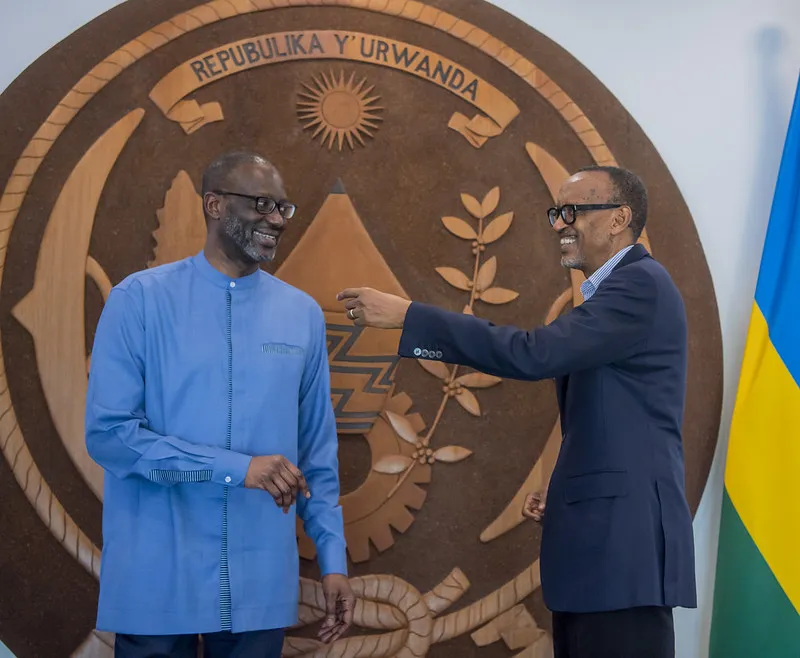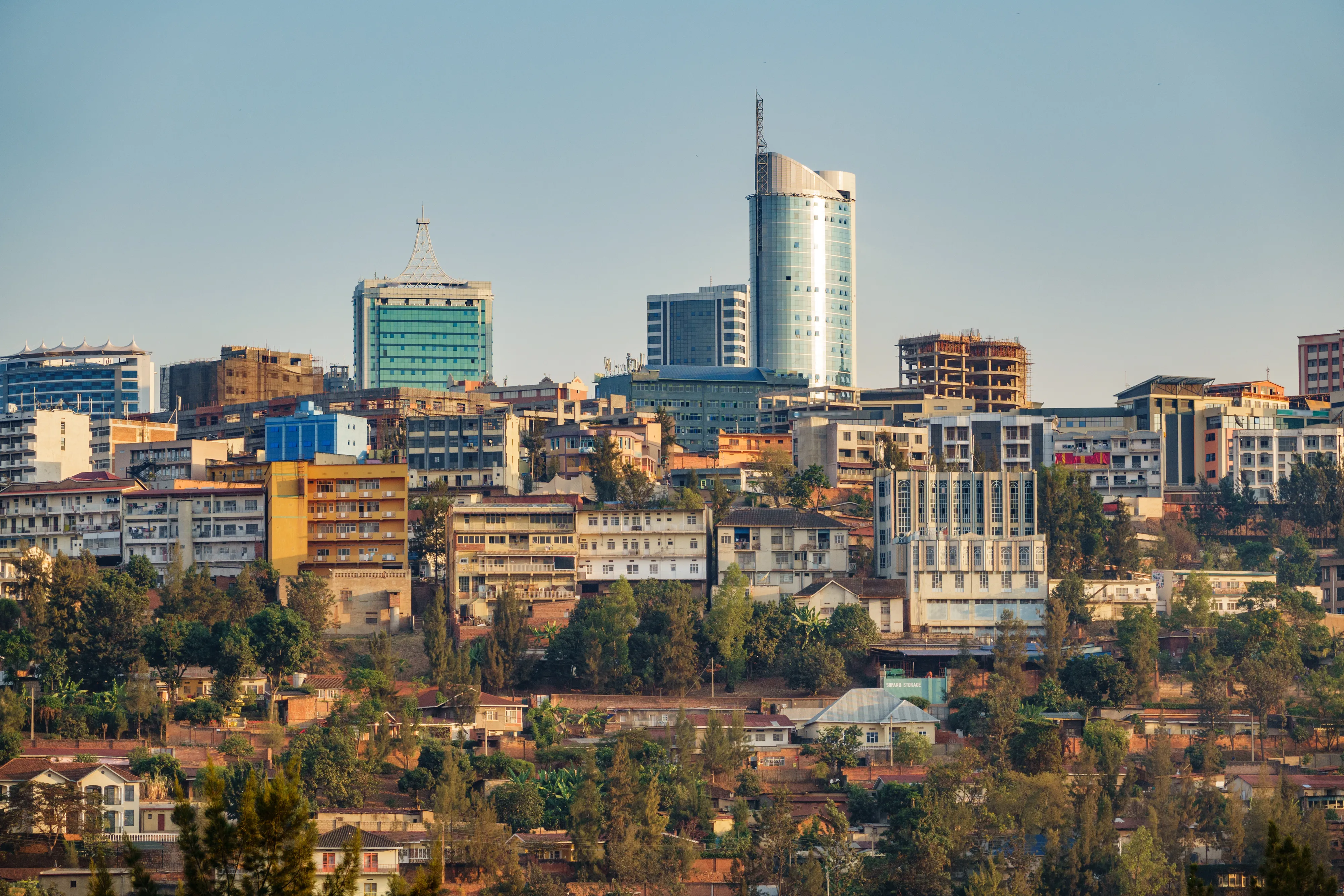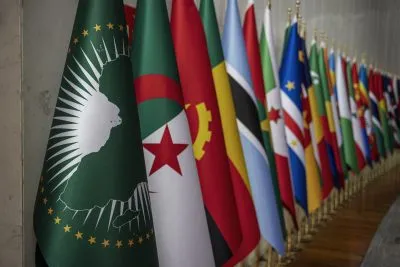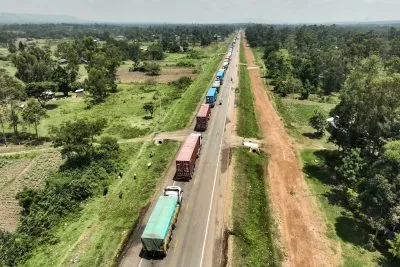In early 2020 Rwanda launched the Kigali International Financial Centre (KIFC), a project driven by Rwanda Finance to transform Kigali into a major financial hub capable of attracting foreign investment and encouraging the creation of highly skilled jobs in the finance sector.
To help achieve this goal, the country’s authorities have undertaken an ambitious restructuring of the local banking and financial sector backed by a legal and fiscal framework including no capital gains tax for business angels backing a local startup and tax holidays of up to seven years in some business sectors.
“The country has some solid assets it can promote, with the stability, growth and judicious planning of Rwanda being unanimously acknowledged across Africa,” says Pierre Célestin Rwabukumba, director of the Rwanda Stock Exchange and one of the architects of the restructuring of the financial sector in Rwanda.
Progress is overseen by a task force consisting of international finance experts. Since November 2020, Ivorian Tidjane Thiam, ex-boss of Credit Suisse, has been chairman of the board of Rwanda Finance, the company responsible for promoting and developing KIFC.
Fellow board members include Liban Soleman Abdi, ex-chief of staff of president Ali Bongo in Gabon and Umulinga Karangwa, CEO and founder of South African investment consulting firm Africa Nziza Investment.

Partnerships are key
Partnerships will be key to the centre’s vision, says Nick Barigye, CEO of KIFC. Rwanda Finance has already entered into strategic partnerships with BPI France, the Belgian Finance Center (BFC), and Casablanca Finance City (CFC), another sizeable financial platform on the continent.
“We want KIFC to be a new destination for pan-African investment,” says Barigye. “We want to be the jurisdiction of choice for the efficient consolidation of capital and be able to deploy it effectively across the continent. We want to connect international investors with opportunities throughout Africa, and we want to connect African entrepreneurs with global capital, as well as connecting the people of Rwanda with the world.”
KIFC announced in November 2021 the launch of the Virunga Africa Fund, an investment vehicle of $250m focused on impact investing and jointly funded by the Qatar Investment Authority and the Rwanda Social Security Board.
More recently, on 3 February, the finance agency made official the launch of the first African fund focused on financial technologies. Endowed with $50m and supported by the teams at the South African firm MyGrowthFund Venture Partners, the fund will concentrate on fintech companies operating in Africa.
In December 2021 BK Group (Bank of Kigali) became the first local holding company to register with KIFC. Ntoudi Mouyelo, chief investment officer at Rwanda Finance, said that onboarding BK Group is key for KIFC’s efforts to build a community of local and foreign businesses that can benefit from the centre.
“When developing KIFC, it is important to demonstrate that we have the framework to build local champions, meaning local companies that can be referenced beyond Rwanda. Onboarding BK Group as our first platinum member is key for KIFC’s efforts around building this community of local and foreign businesses that can benefit from the services of our biggest bank by market share,” he said.
KIFC recently made its debut on the Global Financial Centres Index (GFCI), a ranking of the competitiveness of financial centres across the world. The index rates 116 financial centres, combining assessments from financial professionals with quantitative data. In the ranking, Kigali featured in fifth place on the continent after Casablanca, Cape Town, Johannesburg and Mauritius but ahead of Nairobi and Lagos.
- ‘We expect double digit growth for 2021,’ says Rwanda finance minister
- Rwanda aims to forge vaccine production hub in BioNTech deal
Technology goals
Alongside the financial ambitions, the country is further aiming to digitally transform the economy and society, building on earlier priorities. The country’s Vision 2050 programme aims to make Rwanda a high-income country by 2050, with digital technology playing a pivotal role.
The ICT sector has enjoyed rising levels of investment during the Covid-19 crisis, with the pandemic further accelerating ongoing digitisation. The result is that the country has mobile penetration of over 80% and an extensive 4G network.
Similar to its ambitions with KIFC, the country has launched the Kigali Innovation City (KIC) project, a “smart city” located in Kigali’s special economic zone, whose purpose is to serve as a catalyst for all ICT initiatives in the country, both public and private.
KIC, which benefits from a partnership with the AfDB Africa50 fund, aims to produce and attract the human capital required to meet the future needs of the tech industry not only in the country, but right across Africa. Already operational, the Rwandan campus of Carnegie Mellon University will soon be followed by that of the African Leadership University.
The arrival has also been announced of international tech companies and companies specialising in biotechnology such as the German firm BioNTech, which will set up the first production units on African soil for vaccines using mRNA-messenger technology in Rwanda and Senegal.
The overall objective is to generate $150m in annual exports, attract over $300m in foreign direct investment, and create 50,000 jobs in the tech industry.
Education is a key part of the digital drive. Operational since 2016, the Rwanda Smart Classroom programme aims to equip Rwanda’s educational establishments with computer infrastructure in order to facilitate the digitisation of teaching and learning in all subjects and at all levels of the educational system.
According to data from the Ministry of Education, some 1,783 secondary schools and 365 vocational schools (52% of the total number of establishments in question) had access to “smart classrooms” in August 2021.
More than 4,000 primary schools (35% of the total) were also connected to the internet. The country also plays host to increasing numbers of coding schools and establishments specialising in ICTs.
Want to continue reading? Subscribe today.
You've read all your free articles for this month! Subscribe now to enjoy full access to our content.
Digital Monthly
£8.00 / month
Receive full unlimited access to our articles, opinions, podcasts and more.
Digital Yearly
£70.00 / year
Our best value offer - save £26 and gain access to all of our digital content for an entire year!
 Sign in with Google
Sign in with Google 



